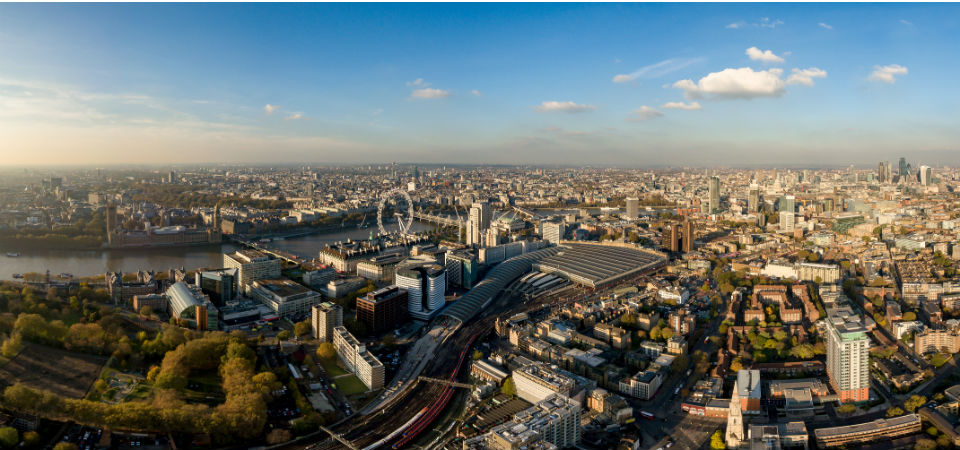
How much do you need to earn to live in London? Loughborough University research shows four out of 10 people in the capital fall below the threshold
Four Londoners in every 10 do not earn enough money to maintain a decent standard of living, new research by Loughborough University has found.

Some 40% of people in London fall below the threshold of earning enough to live a decent life, accord to research at Loughborough University
Some 3.5million people (41%) living in the county’s capital are not able to meet their basic needs, or participate in society - the number has increasing by 400,000 since 2010/11.
For a single person to reach the Minimum Income Standard (MIS) threshold in Outer London they would need to earn at least £20,600 - if they were sharing a flat.
If they lived in a rented (lower quartile rent) studio flat it would be £25,691.
The equivalent for Inner London is £21,700 in shared accommodation and £29,633 living in a studio.
The figures come from Loughborough’s Centre for Research in Social Policy (CRSP).
The research was funded by the independent charity Trust for London.
Matt Padley, from CRSP, said: “There is this quite commonly held idea that life in London costs a lot more than anywhere else in the UK.
“The idea that people live differently in London, go out more, eat out frequently and that all of this has a cost; and that the costs facing people in London are different - housing is more expensive - both buying and renting, getting around on the tube is expensive, and if you’re a family with children, childcare is more expensive.
“But, until we published our first MIS London report in 2015 no one had asked the question ‘what do people need as a minimum in London?’.
“The study in 2015 explored this question and the latest research has returned to London to update this, to see what might have changed over the last couple of years and how this might have affected what people need for a minimum, decent standard of living in the capital.”
An online MIS calculator can be found, here.
Minimum budgets in London
The research shows that compared to the rest of the UK:
• A minimum budget for a single working-age adult is 56% higher in Inner London (up from 47% in the previous report) and 39% higher in Outer London (up from 35%). This is mostly influenced by the high costs of renting even the cheapest properties.
• A minimum budget for a couple with two children is 18% more in Inner London and 21% more in Outer London. This is influenced by the high cost of childcare. These figures are based on families having access to social housing, for those who do not and have to rent privately, the minimum budget is 54% higher in Inner London and 37% higher in Outer London.
• A minimum budget for a pensioner couple is 30% more in Inner London and 17% more in Outer London. This is driven by rent and the additional cost of social activities.
While 41% of Londoners overall fall below the Minimum Income Standard (MIS), this varies greatly across groups:
• 57% of children fall below the standard. This is over 1 million children. This rises to 83% of children in lone parent households.
• 39% of working-age adults are below MIS. Over 2 million adults.
• 27% pensioners do not meet the standard, compared with 15% in the UK as a whole. This represents 300,000 pensioners.
Increasing costs
Between April 2014 and April 2016 private rents are estimated to have risen twice as fast in London as elsewhere in Britain, 7.2% compared to 3.6%, and much faster for smaller properties towards the cheaper end of the market - these increased by around 15% in London, nearly four times the increase in the rest of the UK.
In the same period, the cost of a nursery place for a child over two rose by 8.6% in London and 5.7% in the rest of the country.
Public transport fares increased by 2.5% in 2015 and less than 1% in 2016, more slowly than previously, but still ahead of inflation. Travelcard fares rose somewhat faster than average fares.
Meanwhile there has been severe pressure on services, as local authority budgets continue to be squeezed, and London Councils forecast a £2 billion ‘funding gap’ by 2020.
As well as the higher price of housing, childcare and public transport in London, costs are also influenced by how Londoners live. For example, people living in London said they do not need cars but they do need access to the underground (not just buses) which is more expensive than public transport elsewhere.
Housing requirements are also different, with people accepting smaller spaces as the minimum in London. For example, a flat (which may not have outdoor space) is the minimum acceptable standard for a family in London, whereas a house is the minimum in the rest of the UK.
For a single person to reach the Minimum Income Standard in Outer London they would need to earn at least £20,600 if they were sharing a flat; if they lived in a rented (lower quartile rent) studio flat it would be £25,691. The equivalent for Inner London is £21,700 in shared accommodation and £29,633 living in a studio.
Bigger holes in the safety net
At the same time as costs increasing, there have been a number of changes in support that have particularly affected Londoners, such as the cap on tax credit for childcare, the overall benefits cap and the freezing of Local Housing Allowance.
Solutions
Something can and must be done about this. To help ensure more Londoners can reach a decent standard of living a two-pronged approach is needed; on the one hand bringing down costs and on the other, improving incomes through better wages, supported by adequate in-work benefits.
The fact that rent alone can wipe out gains from the earnings increase represented by the National Living Wage underlines why tackling high costs is at least as important as addressing low pay in London.
ENDS
Notes for editors
Press release reference number: 17/36
Loughborough University is equipped with a live in-house broadcast unit via the Globelynx network. To arrange an interview with one of our experts please contact the press office on 01509 223491. Bookings can be made online via www.globelynx.com
Loughborough is one of the country’s leading universities, with an international reputation for research that matters, excellence in teaching, strong links with industry, and unrivalled achievement in sport and its underpinning academic disciplines.
It has been awarded five stars in the independent QS Stars university rating scheme, named the best university in the world to study sports-related subjects in the 2017 QS World University Rankings and top in the country for its student experience in the 2016 THE Student Experience Survey.
Loughborough was ranked 4th in the Guardian University League Table 2017 and 7th in The UK Complete University Guide 2017 and was also named Sports University of the Year by The Times and Sunday Times Good University Guide 2017.
Loughborough is consistently ranked in the top twenty of UK universities in the Times Higher Education’s ‘table of tables’ and is in the top 10 in England for research intensity. In recognition of its contribution to the sector, Loughborough has been awarded seven Queen's Anniversary Prizes.
The Loughborough University London campus is based on the Queen Elizabeth Olympic Park and offers postgraduate and executive-level education, as well as research and enterprise opportunities. It is home to influential thought leaders, pioneering researchers and creative innovators who provide students with the highest quality of teaching and the very latest in modern thinking.